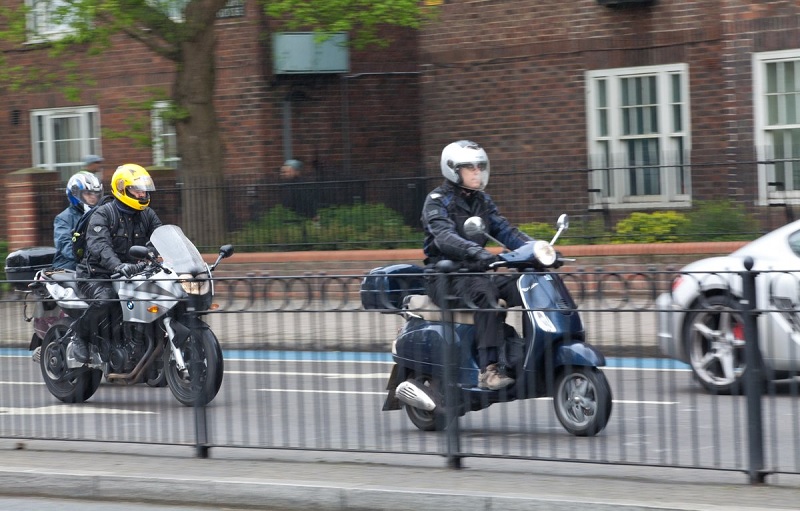
TfL says it remains concerned about the increased risk faced by people riding motorcycles, including mopeds and scooters.
Statistics show riders make up only 3% of vehicle kilometres travelled, but accounted for 32% of people killed on London’s roads in 2020.
The issue has been highlighted as part of a progress report into TfL’s Vision Zero ambitions.
Launched in 2018, the approach aims to eliminate death and serious injury from London’s roads by 2041.
To achieve its goal, TfL says it is now working with delivery companies and motorcyclists to understand how to better safeguard people riding motorcycles for work.
This includes developing a motorcycle safety review tool, tested with stakeholders, to improve safety on corridors with the highest harm with the aim of piloting the tool in the future.
More widely speaking, TfL has also announced plans to trial a default 20mph speed limit on all residential roads, as they look to step up efforts to achieve Vision Zero by 2041.
TfL says lowering speeds remains one of the most important things that can be done to reduce road danger – and as a result will be accelerating the delivery of its 20mph speed limit programme.
This means that by 2024, 220km of TfL roads will have a 20mph speed limit, up from 80km today and 35km in 2016.
TfL will also be recommending to the Government that they collaborate on a pilot project to trial a 20mph default speed limit on all residential roads in London.
Meanwhile, a significant increase in speed enforcement will be undertaken by the Met Police to tackle the risk and harm caused by speeding.
This will be done by increasing capacity to enforce up to one million offences by 2024/25, introducing new technology to improve effectiveness of enforcement and rolling out new powers to Police Community Support Officers (PCSOs) so that they can stop speeding vehicles.
18 November 2021


